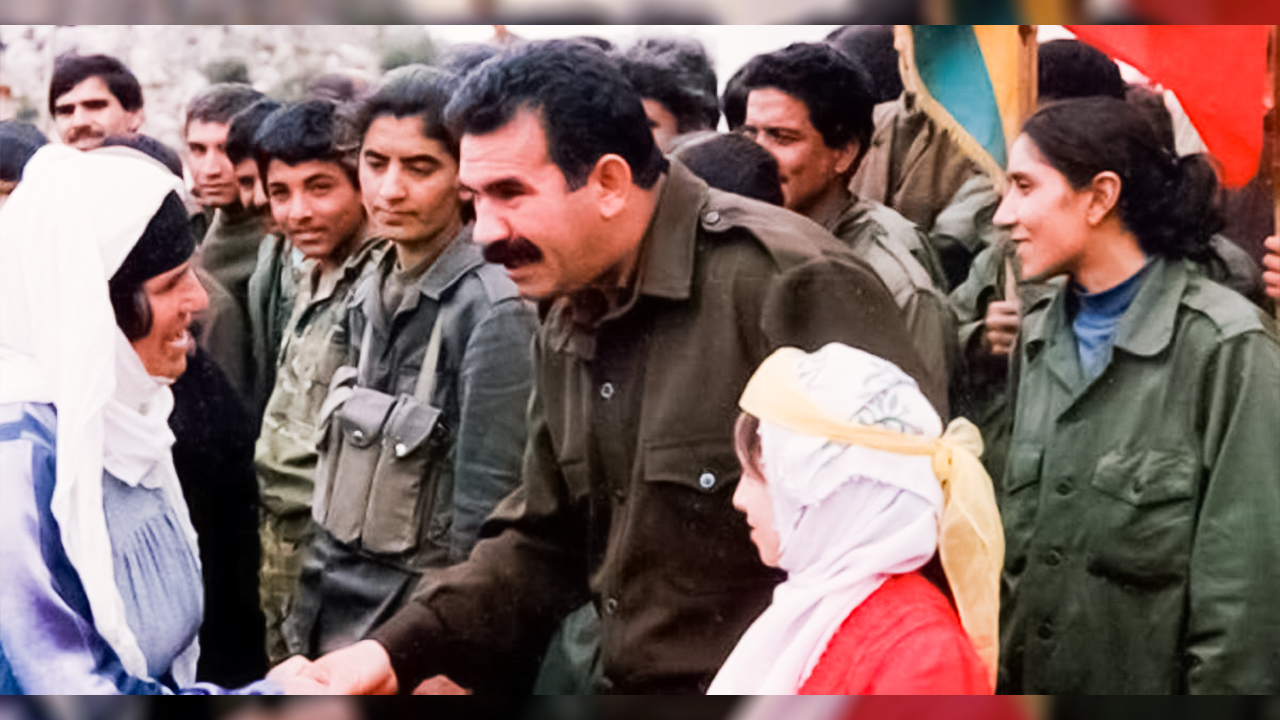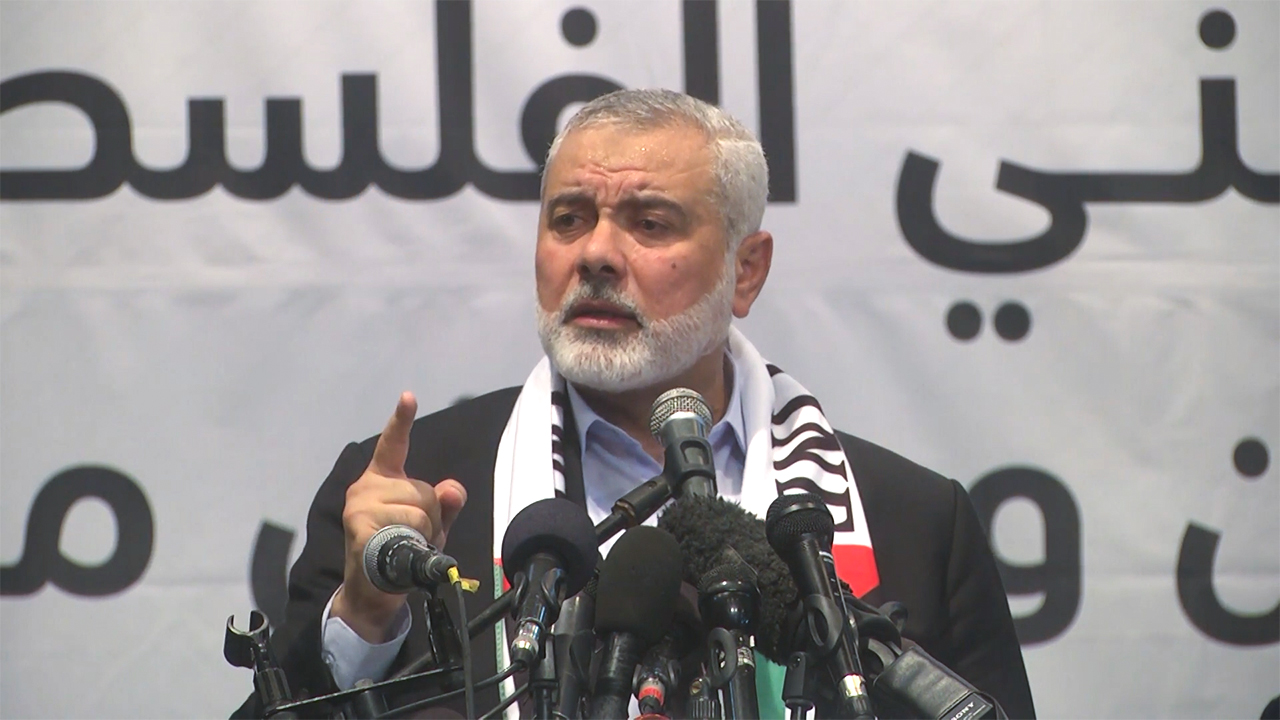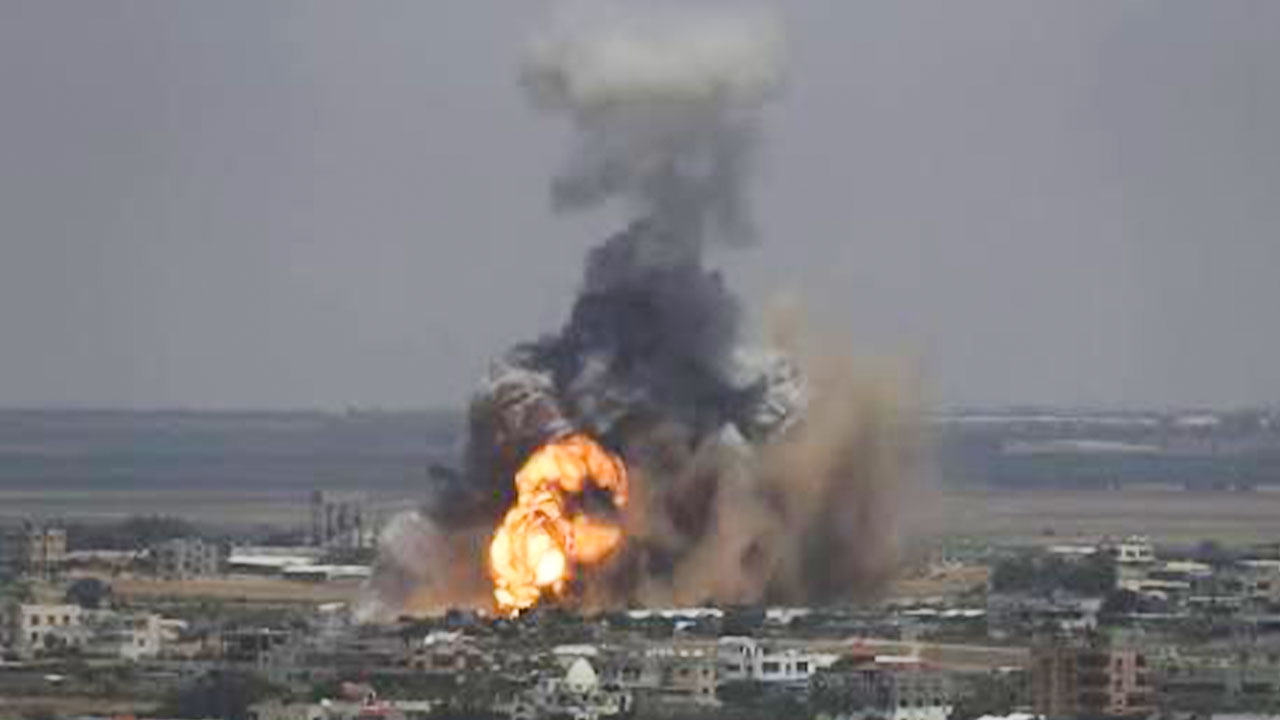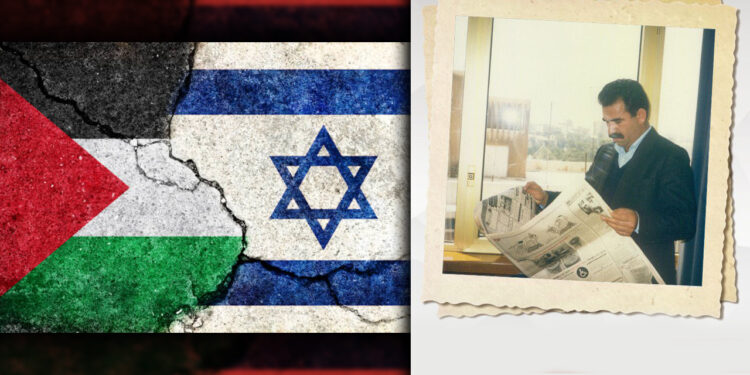*This is Part 2 of a three-part series on Öcalan’s vision for lasting peace. Check out Part 1: “Is two-state solution answer to Israeli-Palestinian conflict?” and Part 3: “Overcoming the Palestinian-Israeli deadlock“
The ongoing Israeli bombardment of Gaza has brought back onto the global agenda Palestinian demands for rights and an independent national state, which have been supported by the United Nations since 1947.
Leaders from many countries have called for an immediate ceasefire (which the United States, along with Israel, has so far rejected). They are also calling for urgent international negotiations to implement the UN two-state plan.
But the question still remains: can an end to decades of conflict be achieved through the two-state solution, often proposed as a means of resolving the Israeli-Palestinian conflict and bringing peace to the region?
Or, in the war-torn Middle East, wracked with Islamic extremism and state violence, is a form of coexistence possible that reaches beyond the nation-state model?
Abdullah Öcalan, the jailed leader of the Kurdistan Workers’ Party (PKK), expressed his views on the prolonged Israel-Palestine conflict comprehensively in his hand-written submissions to the European Court of Human Rights (ECHR) which were later published in five volumes under the title “Manifesto for a Democratic Civilization”.
As the Israeli-Palestinian conflict rages on, we look at Öcalan’s analysis of an alternative two-state solution.

In Middle Eastern culture, everything is like a composite vessel. A social truth that has been successful in one area has the characteristic of spreading rapidly to other areas. Islam has become a world system in a short period of only thirty years.¹

Whether radical, moderate or Shiite Islam, all Islamic nationalist approaches that seek to replace capitalist modernity are nothing but a big fraud. This is because this kind of Islamism is a derivative of the nationalism that has developed under the hegemony of capitalist modernity since the beginning of the 19th century. It is an ideological tool of capitalism that is specific to the Islamic countries of the Middle East and has nothing to do with Islamic civilisation. As masked agents of capitalist hegemony, the political Islamisms of the last two centuries cannot play any other role. For that was how they were constructed and mobilised within capitalist modernity. Their inability to play a role in the last two centuries beyond the deepening of national and social problems in the Middle East is a confirmation of this reality.
They are the main ideological and political obstacles to communalism and democratic nationalism. Cultural Islam is a different matter, and there is a meaningful and positive aspect to the defence and acceptance of this Islam in the context of tradition.
If capitalist modernity cannot be overcome, then the Arab-Israeli and Palestinian-Israeli conflicts will not be able to escape the image of a cat-and-mouse fight. As a result, for almost a century the vitality of all Arab peoples has been wasted in these conflicts with predetermined outcomes. Had these conflicts not been invented, oil revenues alone would have made Arabia worth ten Japans. The most important conclusion to be drawn from this observation is that the nation-state system in the Middle East is not a source of solutions to fundamental national and social problems, as claimed. On the contrary, it is a source of development, aggravation and intensification of problems and making them insurmountable.²
…
Middle Eastern culture cannot be analysed with the positivist ideology and sciences of European modernity. The resullt of what is believed to be analysis of it, is Orientalism. What this paradigm, which has been applied for the last 200 years, has revealed and made visible is neither compatible with historical reality nor with the current concrete nature of Middle Eastern society.
The difference between the two is nothing short of an abyss. The perception of truth in traditional approaches (all culturalist approaches, especially Islamist movements), reconstituted under the strong influence of Orientalism, is even more unrealistic and does not go beyond dry fiction.
Even more contradictory, both with history and with current concrete experience, are the appearances of capitalist modernity, which creates structure for itself intertwined with the paradigm. The rift created by existing differences and contradictions is expressed in a war beyond occasional atrocities.
Neither deep instincts nor cultural backwardness are to blame. The problem lies in the way in which capitalist modernity is implemented, in how it is formed.
The attempt to break up a culture (as material and spiritual culture) that has been interwoven and built up, to be lived for thousands of years, and to place agents (nation-state capitalism and industrialism) within it, is the real cause of the atrocities that have taken place and will take place. Moreover, atrocities and genocide have not been far behind in the recent past.
When the monotheistic religions – Judaism, Christianity and Islam – clashed with each other or with the old religions and paganism, they never ended up with the pages of atrocities caused by capitalist modernity. With the exception of the pagan communities, which have long since been liquidated, the understanding of the Ummah [community] in each of them was able to keep all peoples and cultures alive in peace. As people of the Book of the Righteous, they even allowed for a supra-universal, albeit primitive, unity among themselves. The concept and practice of genocide was not familiar to them. A dark medieval age compared to the positivist new age is only a mythological invention, no matter how many counter-ideas are put forward. It is the myth of the new age that presents itself as a bright one.³

The Republic of Turkey, Egypt, Jordan and some of the Gulf States were among the first to recognise Israel and were therefore accepted as legitimate nation states and included in the system. The rest are at war with Israel and its allies and other countries. Closely linked to Israel’s hegemonic presence in the region are the wars and conflicts with the Arabs on the Palestinian issue and with other Islamic countries on the Gulf issue. Until Israel’s hegemony is recognised, these conflicts, conspiracies, assassinations and wars will continue.
We cannot properly understand why twenty-two Arab nation-states were created unless we properly understand the hegemonic construction of capitalist modernity in the Middle East. The right-left, religious-sectarian, ethnic and tribalist interpretations of the history of petty-bourgeois nationalist independencism cannot properly analyse the capitalist modernity constructed in the Middle East. In this context, the Arab question has to be understood as it is in reality (as does the Republic of Turkey and other Turkish nationalities).
Like the proper understanding of the republican and social problems, the Arab question must first be properly understood in terms of the construction and establishment of the hegemony of capitalist modernity in the Middle East. With mentalities of history and society that mock realities like the “glorious foundation of the nation-state”, no problem of state and society can be understood.
For example, in Palestine, Hamas, which was created by Mossad to weaken the PLO and has nothing to do with the struggle, has brought the PLO and especially its main power Fatah, to the verge of being liquidated. In Kurdistan, they are trying to develop the same model against the Kurdistan Communities Union (KCK).
To this end, new religious high schools and Qur’an courses are rapidly being set up. All mosques have been put at the service of cultural liquidationism by the Directorate of Religious Affairs. Religion has been completely politicised and is being used to deny the existence of the Kurdish people and their struggle for freedom. It has been reduced to a tool of defamation.⁴
…
They wanted to create a typical Israeli-Palestinian dichotomy [between Turks and Kurds]. Just as the Israeli-Palestinian dilemma has been at the service of Western hegemony in the Middle East for a hundred years, so the Turkish-Kurdish dilemma, which is much bigger, could be at the service of hegemonic calculations for at least another century. As early as the 19th century, many of the ethnic and sectarian problems in the region had been developed and left unresolved for the same purpose.⁵










